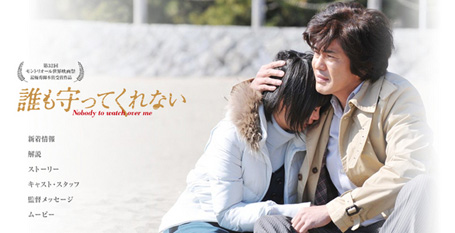
Nobody To Watch Over Me begins with the arrest of a boy for the murder of two girls. The police does not release his details. But the media quickly finds out who he is and starts camping outside his family's house. Meanwhile, inside the house, his teenage sister (Mirai Shida) and his parents watch helplessly as their lives dramatically fall apart.
As hundreds of reporters and photographers turn into one massive mob, thousands of Netizens post their comments on forums and blogs. Some accuse the parents of negligence, while others absolve them. A policemen (Koichi Sato) assigned to protect Mirai finds it harder and harder to shield her from the ravenous throngs...
In the first half of the film, writer-director Ryochi Kimizuka skilfully depicts the mass hysteria surrounding the case, as well as the panic and distress it causes the family. Shot in a gritty documentary style, there is no denying the impact and relevance of the film's first hour, which accurately chronicles the media currency of our time. Unfortunately, the film slowly gives way to a more conventional melodrama, undermining all the potent drama that has gone before. Even strong performances by lead actors Mirai Shida and Koichi Sato fail to lift the mediocre ending.
This is not a must-watch, although students of sociology and mass media may find much here to mull over.

